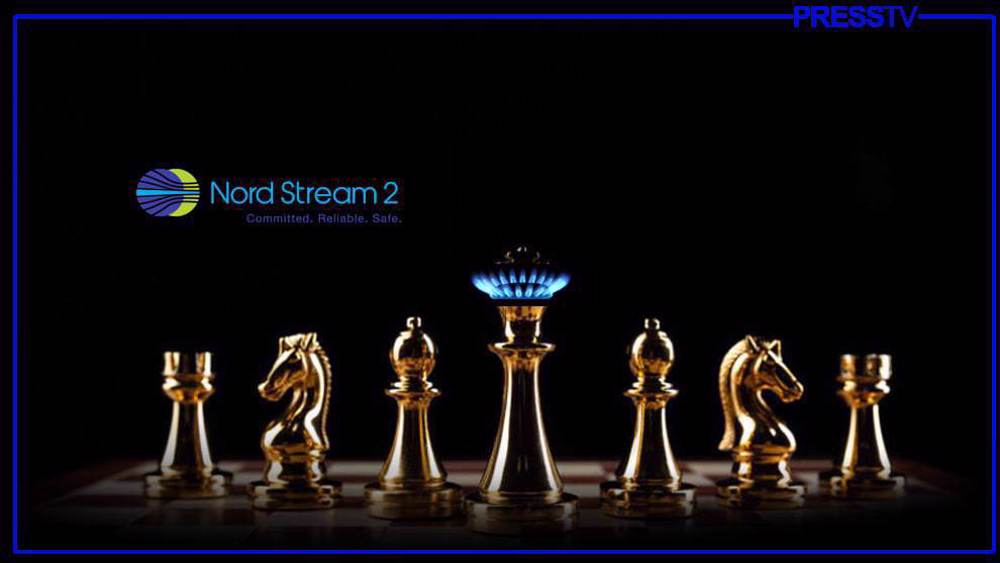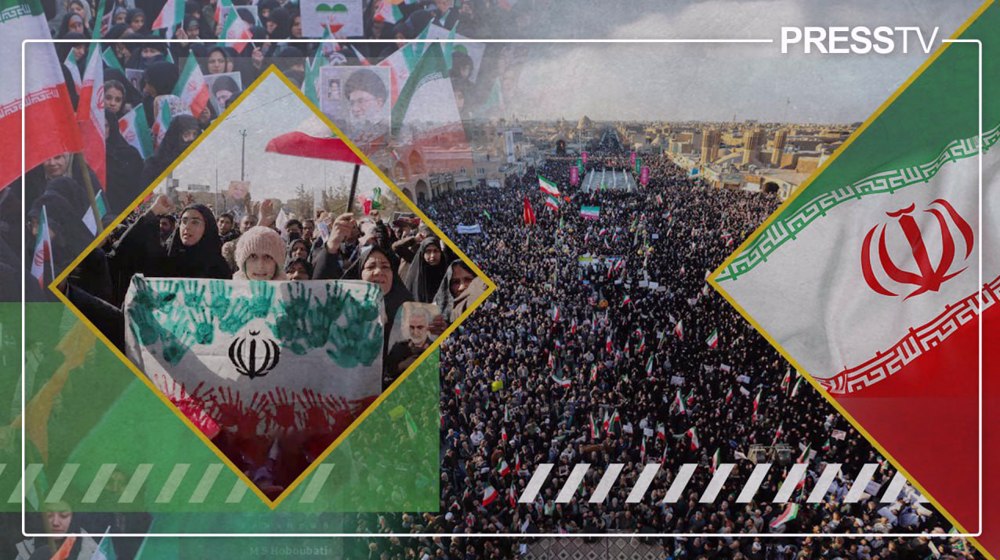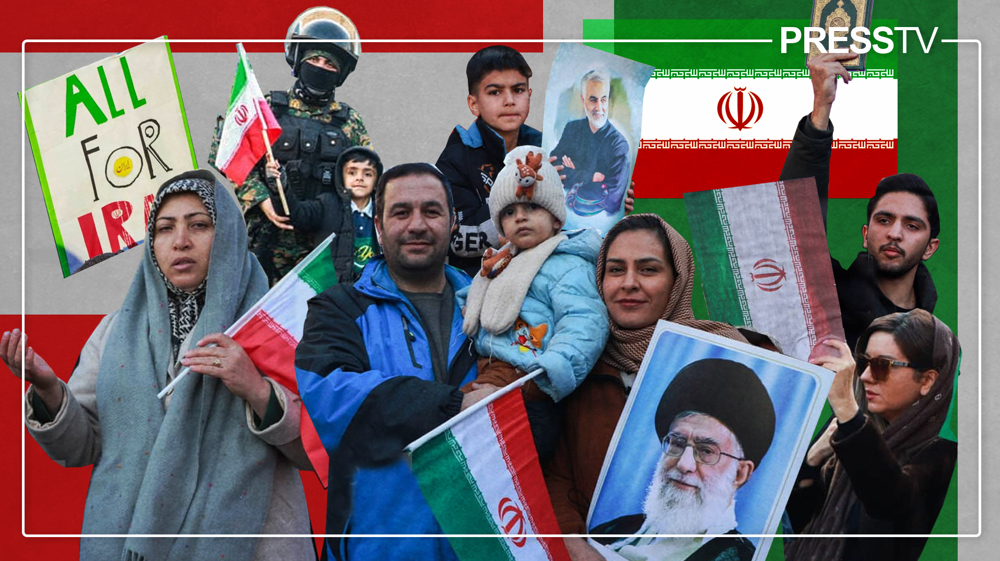Nord Stream 2 will divide Europe, entire West in half
By Shervin Taheri
Forget about the Eastern-Western division of Europe. Nord Stream 2 pipeline will not only cut this continent, but the entire West in two halves. Perhaps we cannot say that all the current hype over the Ukraine crisis is an attempt to stop construction of this pipeline, which will give Moscow new leverage over the European Union, but one can say that stopping the Nord Stream 2 project is the main reason behind the current face-off between Washington and Moscow.
American rulers, both Democrats and Republicans, are well aware that the economic logic of building this pipeline to transfer energy from natural gas fields in Russia's Yamal peninsula, near the Arctic Ocean, to the northeastern coast of German in Greifswald via the Gulf of Finland and the Baltic Sea, overshadows the military logic that seeks further extension of the North Atlantic Treaty Organization (NATO) toward the east.
The former president of the United States, Donald Trump, said in a last week interview that the pipeline was "one of the dumbest moves I've ever seen" and claimed that Germany would get "over 70%" of their energy from Russia.” He added, "And I'm the one that brought that up. Nobody even knew about it. I used to talk about it all the time. Then they'd say, 'Oh, he's weak on Russia.' Putin would say, 'you're killing me with this pipeline.' But I got it stopped."
As Trump said, his administration approved sanctions against companies involved in the construction of Nord Stream 2 pipeline, but the administration of his successor, Joe Biden, suspended them.
However, in 2020, not only most Democrats at the US Congress joined Republicans in passing those sanctions, but Biden himself announced that Nord Stream 2 is a bad deal for Germany, Ukraine and other US allies in Eastern and Central Europe.
Antony Blinken, the US secretary of state, said last year that the Biden administration’s views were negative about the pipeline because it is seen as a geopolitical leverage, which aims to divide Europe and undermine Europe’s energy security.
The Biden administration, which had announced from the beginning that all companies involved in the project must withdraw as soon as possible, knew that imposition of serious sanctions against the pipeline must be avoided for a host of reasons.
Finally, when Nord Stream 2 was completed in September, the White House decided to follow a multi-pronged policy to curb further development of Russia's energy policy in Europe. On the one hand, Biden talked about getting along with this international, and not simply Russian, project, while on the other hand, he tried by stoking the crisis over Ukraine, to threaten possible interests that Russia and its Eastern European allies could seek through development of this pipeline. By doing this, Biden avoided the anger of his European allies, who were fretting over increasing energy prices, while shunning the possibility of facing the wrath of major British and European energy companies that were involved in the Nord Stream 2 project. As a result, the Republicans decided to turn a blind eye to the role played by the energy giant, Halliburton, in the construction of this pipeline.
Construction of Nord Stream 2 ended in September and it was ready to be launched in the coldest months in order to prevent a steep rise in the EU’s energy prices. Afterwards, Nord Stream 2 AG, the Russian company behind the project, decided to register its affiliates in Germany in order to start the legal steps needed for the inauguration of the pipeline. However, the new coalition government in Germany, headed by Chancellor Olaf Shultz, has refrained from licensing the project under pressures from the US, NATO and Ukraine. As a result, the consumer price of natural gas has greatly increased across Europe. Many experts believe that Germany’s dawdling for licensing this project is a result of the weak diplomacy followed by the country’s new Foreign Minister Annalena Baerbock, who is greatly bent toward the United States. The German government previously alleged that the Russian company, which is totally owned by the country’s energy giant, Gazprom, had registered its affiliates in Switzerland, not Germany. Since last week, this excuse has been taken from the German government and the geopolitical war between Russia and the United States has become more evident amid Europe’s energy crunch.
It is evident that the new coalition government in Berlin has decided to act more cautiously amid the ongoing geopolitical war in Europe. As a result, it has made the inauguration of Nord Stream 2 conditional on Russia avoiding military operations in Ukraine. At the same time, this policy will enable Germany to expect Russia return its favor in the near future when Moscow is going to turn into the biggest energy supplier and possibly biggest trade partner of Berlin.
The government of Germany’s former chancellor, Angela Merkel, opposed the suspension of the Nord Stream 2 project until its last days in office despite the fact that her party, the Christian Democratic Union (CDU), was much closer to Washington than the existing ruling party, the Social Democratic Party (SPD).
Faced with demands to go along with Trump’s sanctions against a number of major Russian, European and even American companies, Merkel announced that Nord Stream 2 was a private-sector project and that the German government would not interfere in its implementation.
Of course, the US Democrats had hidden but more radical reasons to sanction companies involved in this project, because Nord Stream 2 was in every aspect similar to its predecessor, Nord Stream 1, which is the world’s longest seabed gas transfer pipeline and was inaugurated in 2011. Nord Stream 1 comprised of two parallel pipelines 1,220 km long and 1,220 mm in diameter, whose maximum annual capacity for gas supply from Russia to Europe was 55 billion cubic meters. In the case of Nord Stream 1, only 30 percent of almost $15 billion investment in construction of land and seabed pipelines was made through stockholder companies and the remaining 70 percent came from other sources. The lion’s share of investment in Nord Stream 2 came through an international German banking network, which is close to Russian President Vladimir Putin.
Nord Stream AG is an international consortium of five major companies based in Zug, Switzerland, 51 percent of whose shares are owned by Gazprom. However, all its affairs are run from Gazprom headquarters in the northern district of Saint Petersburg.
Other oil and gas companies involved in the project include German, Dutch and French energy firms as well as German, Russian, Japanese and Italian companies that specialize in laying pipes on seabed. On the list of companies involved in this project, one can see major firms from Denmark, the UK, the Netherlands, Sweden, Spain, Norway, France and Italy. This long list of major European energy firms involved in Nord Stream 2 project is enough to explain the confusion that the White House has been faced in its effort to prevent completion of this international project. The US-based Halliburton and Intech Engineering are two major American energy corporations involved in the project.
Despite all the aforementioned facts, the Nord Stream 2 project is not actually new. Since the time of the former Soviet Union, that is, for more than half a century, Europe has been dependent on the transfer of gas from Russia.
Some experts even believe that the economic collapse of the Soviet Union was the result of an initiative by then US President Ronald Reagan in the middle of 1980s.
Some 18 years ago, on February 27, 2004, The Washington Post carried a report on the role of gas in the collapse of the Soviet Union and shed light on a plan by the US government to sabotage the eastward transfer of gas (through the Soviet Union, Poland and then East Germany) to Western Europe.
The report admitted that at the beginning of 1980s, Reagan put pressure on its Western European allies to prevent their participation in the construction of a gas pipeline from Russia while, at the same time, drastically slashing West’s banking cooperation with Moscow. These sanctions prevented Eastern European countries from taking full advantage of their energy resources to revive their economies. The Kremlin and its allies were not only unable to pay for the Cold War expenses, but due to insufficiency of their economies, they totally relied on the revenues earned through selling and transferring gas to Western Europe.
The report also noted that there were clues at that time to show that the Soviet Union was trying to obtain a wide range of Western technologies. The Central Intelligence Agency (CIA) decided to sell fake equipment to the Soviet Union in a way that the Soviet side would not be able to recognize they were fake. In 1970, the Soviet Union officials launched a new section at the KGB to work on necessary Western technologies.
During the Cold War, not only the Soviet Union, but also its European allies such as East Germany and Poland, who counted a lot on revenues through gas sales, were faced with a major problem in the mid-1980s. Imposition of tough sanctions against the Soviet Union, on the one hand, and reduction of its revenues, on the other, finally led to the economic collapse of the Soviet Union.
Last week, the operator in charge of completing the Nord Stream 2 project registered a German offshoot in order to meet Germany’s oversight requirements, though a final license for the project has not been issued by Berlin yet.
The Nord Stream 2 project, which is the most important energy project of Europe, has been designed to double the amount of gas that Russia sends to Germany and also bypasses Ukraine as the traditional transit route for the Russian gas, because it goes through the Baltic Sea.
Since the pipeline deprives Ukraine of the gas transit revenues and increases Europe’s dependence on the Russian gas, Moscow has been faced with increased resistance from the United States and inside the European Union at a time that Russia is in the midst of a serious face-off with the West.
(The views expressed in this article do not necessarily reflect those of Press TV.)
European parliament pushes new hostile measures after CIA-Mossad-backed riots in Iran
Behind the riots: Spy games, media spin, discarded monarchists and lessons from history
IRGC deputy chief warns of harsh response to any aggression against Iran
Araghchi appreciates Pakistan’s vote against anti-Iran UNHRC resolution
Discover Iran: Historical, natural, and economic tapestry of idyllic Hormozgan islands
ICE detains 2-year-old girl, sends her to Texas despite court order
VIDEO | Trump claims his 'Board of Peace' might replace the UN
VIDEO | Shadows of Rebellion: How Iran’s protests turned violent










 This makes it easy to access the Press TV website
This makes it easy to access the Press TV website